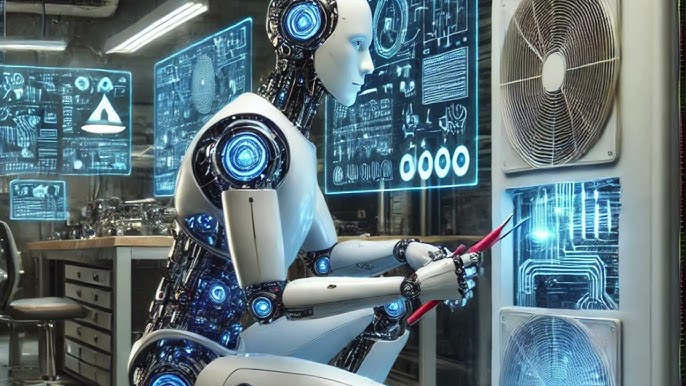In the rapidly evolving world of technology, the integration of Artificial Intelligence (AI) has significantly impacted various sectors, including Heating, Ventilation, and Air Conditioning (HVAC). The advent of advanced HVAC diagnostics using AI models is transforming the way we manage and maintain HVAC systems. This article delves into how these innovations are reshaping the industry, offering enhanced efficiency and reliability.

Understanding the Basics of HVAC Systems
HVAC systems are integral to maintaining comfort in residential, commercial, and industrial environments. These systems regulate the heating, cooling, and ventilation, ensuring optimal air quality and comfort. The complexity of these systems often requires precise diagnostics to maintain their efficiency and effectiveness.
The Role of AI in HVAC Diagnostics
Artificial Intelligence plays a crucial role in enhancing HVAC diagnostics. By utilizing AI models, systems can predict faults, optimize performance, and improve overall efficiency. The integration of AI allows for real-time monitoring and predictive maintenance, reducing downtime and operational costs.
Predictive Fault Management
AI models excel in predictive fault management by analyzing data patterns and identifying potential issues before they manifest. This proactive approach minimizes unexpected breakdowns. For more insights, explore our section on Predictive Fault Management in HVAC.
AI-Powered Reports
AI-powered reports provide detailed analysis and insights into system performance. These reports help technicians and engineers make informed decisions, enhancing the efficiency of maintenance practices. Learn more about how AI can streamline reporting in our article on AI-Powered Reports for HVAC Inspections.
Benefits of AI in HVAC Systems
The integration of AI in HVAC systems offers numerous benefits, including increased energy efficiency, improved indoor air quality, and reduced operational costs. AI algorithms can optimize system settings based on usage patterns, leading to significant energy savings.
Energy Efficiency
AI models can adjust HVAC operations to align with energy-saving goals. By analyzing data from various sensors, AI can optimize temperature settings and reduce energy consumption. For an in-depth look at AI’s role in energy efficiency, visit this article.
Enhanced Indoor Air Quality
AI-driven diagnostics can monitor and improve indoor air quality by detecting pollutants and adjusting ventilation rates accordingly. Discover more about AI’s impact on air quality in our section on AI for Indoor Air Quality Monitoring.
Challenges and Future Prospects
While the benefits are clear, integrating AI into HVAC systems comes with challenges, such as the need for substantial data and advanced algorithms. However, as technology advances, these challenges are gradually being addressed, offering promising prospects for the future.
Data Requirements
The effectiveness of AI models relies heavily on the availability of accurate and comprehensive data. Ensuring data quality and accessibility remains a challenge.
Technological Advancements
The continuous improvement of AI technologies promises enhanced capabilities and functionalities in HVAC diagnostics. Stay updated with the latest advancements in our section on Predicting HVAC Breakdowns with AI.
Conclusion
The integration of advanced HVAC diagnostics using AI models is revolutionizing the HVAC industry. By offering enhanced efficiency, predictive maintenance, and improved air quality, AI is set to redefine how we manage HVAC systems. As technology continues to evolve, the future of HVAC diagnostics looks promising, with AI leading the charge.

FAQs
How does AI improve HVAC efficiency?
AI improves HVAC efficiency by optimizing system operations, predicting maintenance needs, and reducing energy consumption through intelligent data analysis.
What are the challenges of using AI in HVAC systems?
The primary challenges include data availability, algorithm complexity, and system integration. However, advancements in technology are gradually overcoming these hurdles.
Why is predictive maintenance important in HVAC systems?
Predictive maintenance is crucial as it helps prevent unexpected breakdowns, reduces downtime, and extends the lifespan of HVAC systems, ultimately saving costs.
This article contains affiliate links. We may earn a commission at no extra cost to you.
